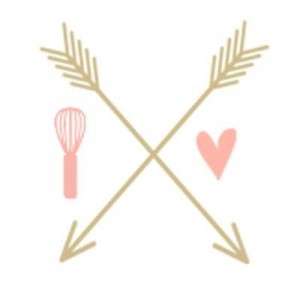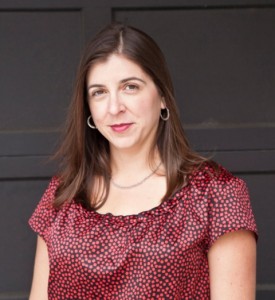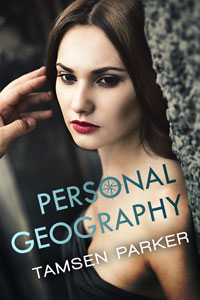Hi, everyone! Audra here. Elisabeth Lane, whom many of you know from Cooking Up Romance, is here to talk about fantasy love objects, alpha males, and relatable heroines. We’d love to hear your thoughts on her thoughts, so please feel free to comment and add your own perspective. And if you have a chance after you read this post, head on over to her blog and check out her awesome recipes and creative reviews of romance novels. With that, take it away, Elisabeth!
We’ve all seen references to Book Boyfriends and Book BFFs, right? Heroes we’d like to date? Heroines we’d like to clothing shop and have coffee with? It’s a common way of parsing how readers react to romance characters. I’ve done it myself. If we don’t fantasize the heroine as our best friend or the hero as our boyfriend, what good is the book, right?
Wrong. At least for me.
I recently found a theoretical framework for exploring reactions I have to characters that are more complicated than a man I’d want to date or a woman I’d want to hang out with: Laura Kinsale’s essay “The Androgynous Reader” in Dangerous Men and Adventurous Women. While I don’t agree with everything in the essay, and some of the assertions were tentative, and it was written quite a while ago (1992), and it didn’t take into account queer romance at all, and it was focused largely on historicals featuring privileged white characters (got all that?), it gives a different perspective on reader identification with characters than I had seen before. Specifically, that female readers identify equally with romance heroines and heroes, stepping into the shoes of both hero and heroine at different moments in the story. And while fantasy relationships may play some part in reader-character identification, it may not be as much as is sometimes assumed.
The Book Boyfriend/Book BFF convention is a mild form of an assumption that crops up now and again both in and out of the romance community that the hero’s primary function in a romance is to be a reader’s love object: a fantasy man to attach fantasy feelings to. And the heroine’s primary function is to be a placeholder for the romance reader: the object of or even competition for the hero’s affection. And while that may be true and the full story for some readers, I (and Kinsale in her essay) wonder if that’s not simplistic. After all, whether romance readers identify as feminist or not, many would bridle at the high-handedness of an average romance hero if directed at us in real life. No one is going to bundle me into any carriage against my will any time soon.
I thought I would need a heroine to relate to, or a man sexually interested in women to hook my fantasies. Wouldn’t only some kind of destructive or ascetic desire for unrequited love put me in the role of a straight woman lusting after a gay male character? Or internalized misogyny: a straight woman wanting nothing to do with other women and their struggles with systemic sexism? I couldn’t wrap my head around it. But suddenly in queer romance, I had a whole new way to experience the romantic story arc and the characters that create it in a way that took me by surprise.
In queer romance I was reading heroes (whether male, genderqueer or trans*) as people with their own motivations and desires, not as fantasy objects or love interests because I had no expectation that they should function that way. Previously I had only been conscious of reading heroines like that. I found myself less judgmental toward heroes who wronged their romantic partner as both partners are marginalized by society at large. It turns out when you remove my innate protectiveness of heroines (to be read alternately as my BFF or myself), I’m able to more effectively put myself in the hero’s shoes, not less. This was a huge revelation! I didn’t need a heroine or a man sexually interested in women to connect with a romance!
Books like E.E. Ottoman’s trans* romance A Matter of Disagreement or KJ Charles’ m/m romance Think of England left me more attuned to the motivations of heroes across the board: motivations that were independent of his romantic interest in the heroine because there wasn’t one. No hero-as-fantasy, no heroine-as-reader-placeholder and yet they are clearly romances. There is identification with these characters, their struggles and their romantic arcs, independent of fantasy.
Alpha heroes might not display every characteristic I’d like to see in heroes (or that the men I know and love personally display). Plus they might display lots of characteristics some of us would prefer to avoid. I’m not unequivocally defending alpha heroes, who are particularly tough to take when they lack vulnerability and deprive others of agency and because I have concerns about portraying masculinity in such narrow ways. However, the level of competence, confidence and even arrogance they’re allowed to have seems like it could be vicariously thrilling, even for someone not of the same gender.
Take defending someone physically, a hallmark of many alphas. It’s not an experience most romance readers have every day (regardless of gender), and in fact, might not be capable of depending on the circumstance. So instead of looking at an alpha hero and being afraid that we don’t measure up (or being afraid of him, period), we can look at him as a version of ourselves we don’t typically feel comfortable expressing. Women at least are supposed to step out of the way, mediate, and make sure everyone is comfortable in society’s conception. We don’t, by virtue of size or sense of entitlement, often get to insist that other people must see things our way the way an alpha hero can. His power becomes our power. Strength that could be considered threatening is placed on our side.
Maybe I’m a weird reader (and truly, there’s plenty of evidence for that), but looking back at my reviews with the proof of reader identification across the gender spectrum, it’s clear that I have found both heroines and heroes equally intriguing. And it’s been seamless, regardless of romantic and sexual pairings. One example is Ash from Alexis Hall’s Glitterland because I have made nearly every single one of his mistakes, if not in so dramatic a fashion. That love story was a spiritual one for me, an example of God’s love, extended by one imperfect human being to another without either of them having been “perfected” first. And for totally different reasons, the hero of Jeffe Kennedy’s Ruby, Bobby Prejean, who is a more of an alpha, though not one in the motorcycle gang mold. Because, well, I want to be him when I grow up. I envy his competence and his utter lack of apology for being exactly who he is. People must take him on his terms or not at all. This standard applied to alphas generally makes them less problematic for me as a character type, even if it doesn’t erase all my concerns about them.
When characters are reduced to fantasy romantic placeholders at any point along the gender spectrum, it doesn’t honor the fact that some romance readers seem to draw insight, strength, comfort, and satisfaction from a wide variety of characters. In the future, I will be more careful about the language of “fantasy” as regards romance, because really, I don’t think character identification has ever been quite that simple.
About Elisabeth
 I live in the Washington, DC suburbs with my husband and our dog. I spent nearly 15 years in marketing before quitting to become a full-time housewife. I sit around all day eating bonbons and reading romance novels. Okay, not really. But I am a housewife and I do read a lot of romance novels. I started reading romance in high school. And I started cooking long before that. I love to experiment in the kitchen, go ballroom dancing and spend lots of time in thrift stores looking for mid-century modern pottery to add to my collection.
I live in the Washington, DC suburbs with my husband and our dog. I spent nearly 15 years in marketing before quitting to become a full-time housewife. I sit around all day eating bonbons and reading romance novels. Okay, not really. But I am a housewife and I do read a lot of romance novels. I started reading romance in high school. And I started cooking long before that. I love to experiment in the kitchen, go ballroom dancing and spend lots of time in thrift stores looking for mid-century modern pottery to add to my collection.
On my blog, I match the romance novels I read with a recipe from my personal archives or just make up a new one. I post a couple times a week, most often a book review with a recipe, but sometimes just my thoughts on a particular romance topic.
Read more about me and my adventures pairing romance novels with food at cooking-up-romance.com.























